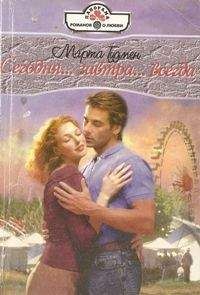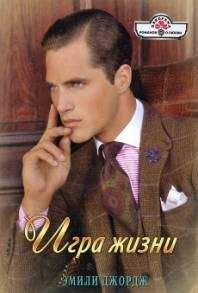Виктор Есипов - Василий Аксенов — одинокий бегун на длинные дистанции
Александр Генис
Наездник бочкотары[131]
Аксенов всегда был модным. Ему удалось то, о чем мечтают все писатели, — перешагнуть границу поколений. Он покорил всех — и романтических читателей журнала «Юность», и бородатых диссидентов, и сегодняшнюю Россию, где «Московская сага» (сам видел) делит книжный развал с Пелевиным и Сорокиным. При этом нельзя сказать, что Аксенов, «задрав штаны, бежал за комсомолом», как бы тот ни назывался. Просто он всегда был молодым. Основатель русской версии «джинсовой прозы», Аксенов сохранил ее способность «освежить мир». Не перестроить, заметим, а отстранить, сделать новым, а значит — юным. Борясь со «звериной серьезностью» (его выражение), Аксенов поставил на «карнавал и джаз». Неудивительно, что он прижился в Америке. Как его американские учителя и соратники — от Сэлинджера до Пинчона[132] — Аксенов исповедовал вечный нонконформизм, взламывающий окостеневшие формы романа, мира, жизни. Об этом, в сущности, все его книги, но прежде всего — «Затова ренная бочкотара».
Писатель любит, когда хвалят его последнюю книгу, но я, читая Аксенова с 4-го класса и зная его четверть века, позволю себе выбрать именно эту повесть, ибо в ней произошло невозможное. Очистив иронией штамп и превратив его в символ, Аксенов сотворил из фельетона сказку, создав положительных героев из никаких.
Когда, наконец, закончится затянувшаяся война отцов и детей и в России поставят памятник «шестидесятникам», хорошо, если б им оказалась затюренная, затоваренная, зацветшая желтым цветком бочкотара, абсурдный, смешной и трогательный идеал общего дела для Хорошего Человека.
Jack Matlock[133]
Remembering Vasya Aksyonov
I was first assigned to the American Embassy in Moscow in 1961. This was when the «Generation of the Sixties» (шестидесятники) was beginning to rise in prominence. It was an exciting development for those of us who admired Russian literature and were appalled at the crushing of creativity brought on by Stalin’s enforced «socialist realism». I read Vasya’s Starry Ticket with great interest, particularly since it seemed to deal with the same theme as the American writer J.D. Salinger did in his The Catcher in the Rye — a disaffected adolescent who runs away from humdrum reality to what he imagines will be a more glamorous life elsewhere.
I then began to follow the stories Vasya published in Yunost’. «Oranges from Morocco» was one that impressed me. Much later, he told me that the story was inspired by an experience while he was in school in Magadan. The original title had been «Oranges from Israel». He was instructed to replace Israel with Morocco in the title after the Soviet Union broke relations with Israel following the 1967 war.
Although I was a young diplomat not much older than Vasya, my academic specialty had been Russian literature and I was eager to meet as many Soviet writers as possible. In fact, one of the reasons I entered the American Foreign Service was because it seemed, while Stalin was still alive, one of the few ways an American could live for a time in the Soviet Union and thus have direct contact with Russian culture. Soviet authorities, however, did their utmost to prevent even the most innocent, non-political contact between Soviet citizens and members of the American Embassy staff.
Nevertheless, many members of the «Generation of the Sixties» welcomed contact with us and responded to invitations when they thought they could get by with it. Usually we arranged social functions when American writers or other cultural figures were visiting under our official exchanges agreement. It was at one of these functions that I first met Vasya. I saw him more often when I was assigned to the embassy in the 1970s, and therefore we were well acquainted with each other by the time the Woodrow Wilson Center invited him to come to Washington for a year.
Among the many memories of our meetings in Washington two stand out. During the early part of 1981 I was in temporary charge of the American Embassy in Moscow but returned briefly to Washington for consultations. When I arrived, I was told that Vasya and Maya invited me to a party in their Washington apartment. I don’t recall whether it was a birthday party or another occasion, but it turned out to be a rather strange combination of celebration and mourning. Vasya had come to Washington on a grant to stay for a year. He had left Moscow with no intent to emigrate. But shortly before the party he learned that he had been deprived of Soviet citizenship.
That news hit Vasya hard. Uncomfortable as he had been with Soviet restrictions on life, Russia was home and to feel rejected by the government of his own country and to lose the prospect of returning when he wished were bitter counterparts to his feeling of artistic liberation in America. Maya had prepared a sumptuous meal with much seafood — I recall piles of lobster. We were all outwardly exuberant, welcoming the Aksyonovs to America, but there was an undercurrent of melancholy as well, a mood well in tune with the jazz melodies Vasya loved so much.
My next snapshot memory: Rebecca and I arranged a dinner for the Askyonovs and Lyubimovs when Yuri Petrovich was in Washington directing his version of Crime and Punishment at the Arena Theater. They were two titans of Russian culture forced into what fortunately turned out to be temporary exile, though no one at that time could be confident it was temporary. Leonid Brezhnev was at the height of his power, but already showing signs of senility. During dinner, Vasya and Yuri regaled us with hilarious improvised skits. Lyubimov would play Brezhnev and Vasya a fawning Soviet journalist putting questions to him. Their performance kept all the guests in stitches and provided us with one of the most memorable evenings we have experienced.
Vasya was finally allowed to return to Moscow during Gorbachev’s perestroika. I was then American ambassador in Moscow and Rebecca and I invited Vasya and Maya to visit and to stay with us while in Moscow. We attended with them the dramatization of Yevgenia Ginzburg’s memoirs at Oleg Tabakov’s Sovremenik Theater, and also a dramatization of Vasya’s povest’, «Zatovarennaya bochkotara». Both plays were done brilliantly. Vasya was deeply moved by the portrayal of his mother’s experiences, and delighted that Tabakov and the Sovremenik actors had managed to capture the spirit and humor of the story he had written.
While on this first trip back to Russia — it was still part of the Soviet Union then — Vasya agreed to give a public lecture at Spaso House about his experiences in America. He called it «A Russian Writer in America». As I recall, his theme could be summarized as follows: «I am a Russian writer living in America. When my country rejected me, America took me in. But I am still a Russian writer. A Russian writer in America». The following year, Vasya’s Soviet citizenship was restored.
As an American whose life has been intwined with Russian culture, I am comforted by the thought that my country has served at critical times as a refuge for creative artists facing political oppression at home. Vasily Aksyonov and Yuri Lyubimov, along with many others including Vladimir Nabokov, Alexander Solzhenitsyn, Mstislav Rostropovich, Ernst Neizvestny, and Iosif Brodsky enriched both American and Russian culture by their presence on our soil. Anyone who argues that the fundamental interests of Russia and America are in conflict should ponder the fact that our cultures are not only mutually compatible, but are mutually supporting. Neither culture would be what it is without the other, and there is no better proof of our shared values than the work of Vasili Pavlovich Aksyonov.
Джек Мэтлок
Вспоминая Васю Аксенова[134]
Впервые я получил назначение в американское посольство в Москве в 1961 году. В то время «шестидесятники» становились популярными. Это невероятно вдохновило тех из нас, кто восхищался русской литературой и был потрясен крушением творческого потенциала во времена сталинского «социалистического реализма». Я прочитал Васин «Звездный билет» с большим интересом, особенно с того момента, когда он показался мне связанным с той самой темой, которую затронул американский писатель Дж. Д. Селинджер в своей книге «Над пропастью во ржи»: недовольный подросток убегает от однообразной действительности к воображаемой чарующей жизни в другом месте.
Затем я начал читать Васины рассказы, опубликованные в «Юности». «Апельсины из Марокко» впечатлили меня. Позже он сказал мне, что рассказ был вдохновлен переживаниями того времени, когда Вася учился в магаданской школе. Оригинальным названием было «Апельсины из Израиля». Ему пришлось поменять в названии Израиль на Марокко после того, как Советский Союз разорвал отношения с Израилем вслед за войной в 1967 году.
Хотя сам я тогда был молодым дипломатом, немногим старше Васи, я живо интересовался русской литературой, поскольку занимался ей в университете, и горел желанием познакомиться с советскими писателями. Собственно, дипломатическую службу я выбрал как раз потому, что при жизни Сталина для американцев это был один из немногих способов напрямую соприкоснуться с русской культурой. Советские власти, впрочем, делали все возможное, чтобы предотвратить какие-либо, пусть самые невинные, неполитические связи между советскими гражданами и сотрудниками американского посольства.



